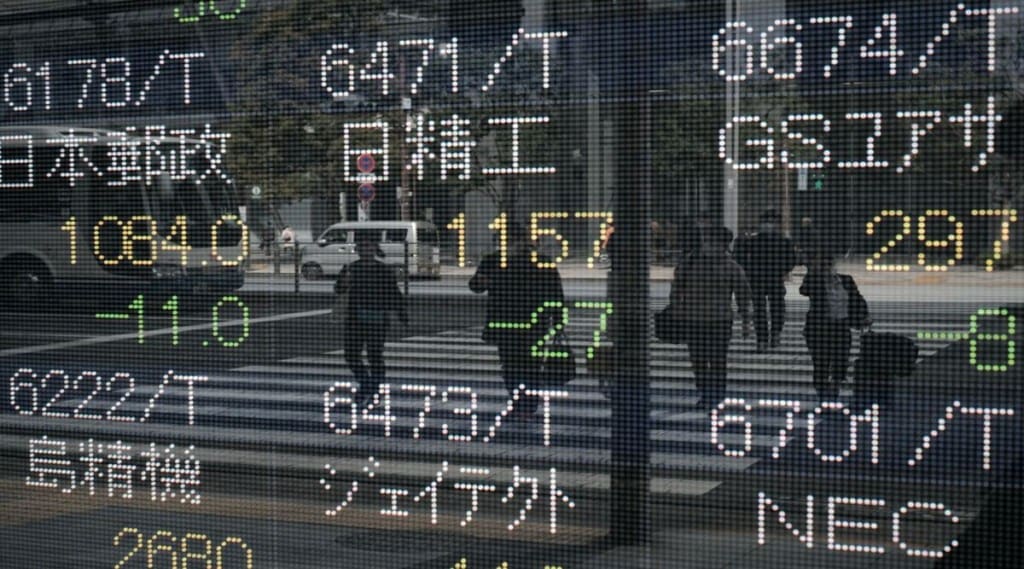Stocks in Asia outside of Japan rose Wednesday as investors weighed prospects for a de-escalation in the war in Ukraine that sent Treasury yields lower. Oil pared gains.
Equities fell in Japan as the yen rose after its recent slide to a six-year low. They rose in Hong Kong and China. U.S. futures wavered after the S&P 500 gained for a fourth day and the Nasdaq 100 climbed as Apple Inc. notched up its longest streak of gains since 2003.
Bonds got a reprieve from their recent rout as hopes for progress in talks between Russia and Ukraine drove down oil prices and inflation expectations. A slide in long-end yields saw the two- to 10-year curve briefly invert — typically a signal of impending recession, though its accuracy is in doubt after years of heavy stimulus.
Oil modestly reversed some of its slide as investors remained circumspect about the chances of the war being defused. Russia said it will sharply reduce military activity near Ukraine’s capital Kyiv and its chief negotiator said Moscow would take steps to “de-escalate” the conflict. The talks failed to reach agreement on a cease-fire, however, and the Pentagon said Kyiv remains under threat. The dollar slipped.
The rally in equities globally remains fragile as the war in Ukraine drags on, and analysts are skeptical of Russia’s intentions. The Treasury yield curve’s inversion fanning debate over the risks of a growth downturn as central banks globally begin to withdraw stimulus. Money markets in the U.S. are pricing in two percentage points of additional interest-rate hikes this year.
“We knew that we were late cycle and typically the yield curve inverts, and it takes anywhere from 18 to 24 months to actually move into a recession,” Erin Browne, portfolio manager at Pacific Investment Management Co., said on Bloomberg TV.
She added that “there are reasons to believe this time around that yield curve inversion may not be as good an indicator as it has been in the past, particularly given the enormous amount of quantitative easing undertaken by global central banks.”
Philadelphia Fed Bank President Patrick Harker said he expects a series of “deliberate, methodical” rate increases this year, but said he is open to a half-point move in May if near-term data shows more inflation.
Consumer sentiment appears resilient, as the latest U.S. confidence data suggest solid job growth has offset Americans’ concerns over accelerating inflation for now. Government data Friday are expected to show the economy probably added close to a half million jobs in March as the unemployment rate fell to 3.7%.
